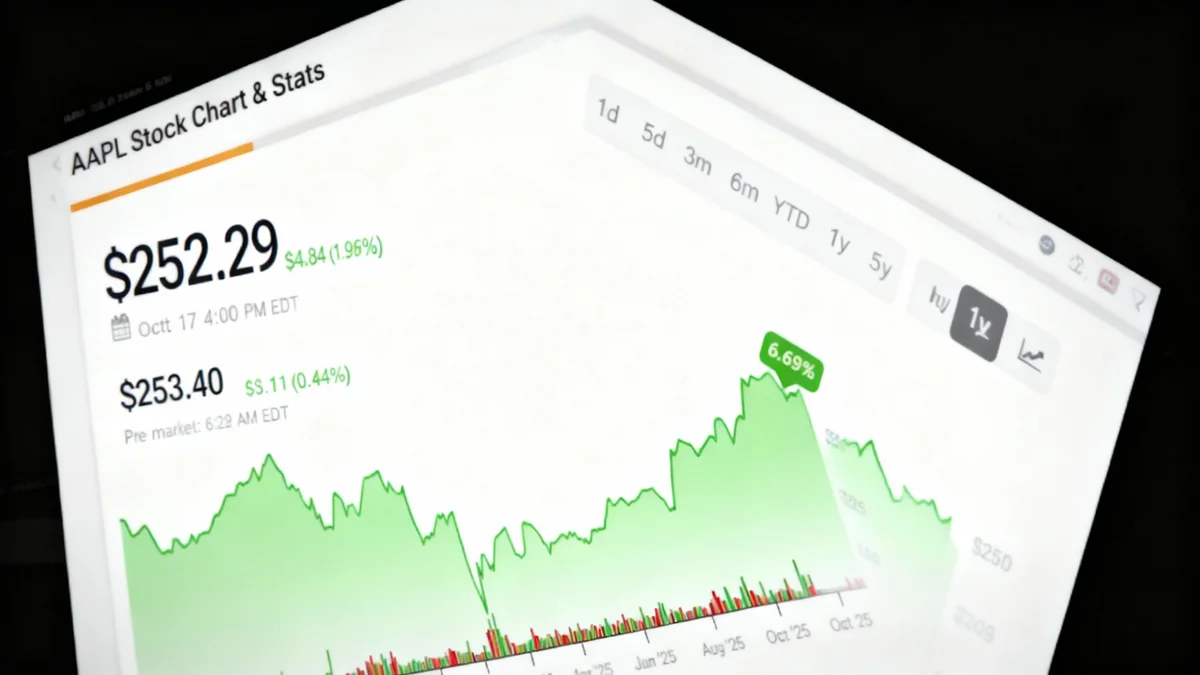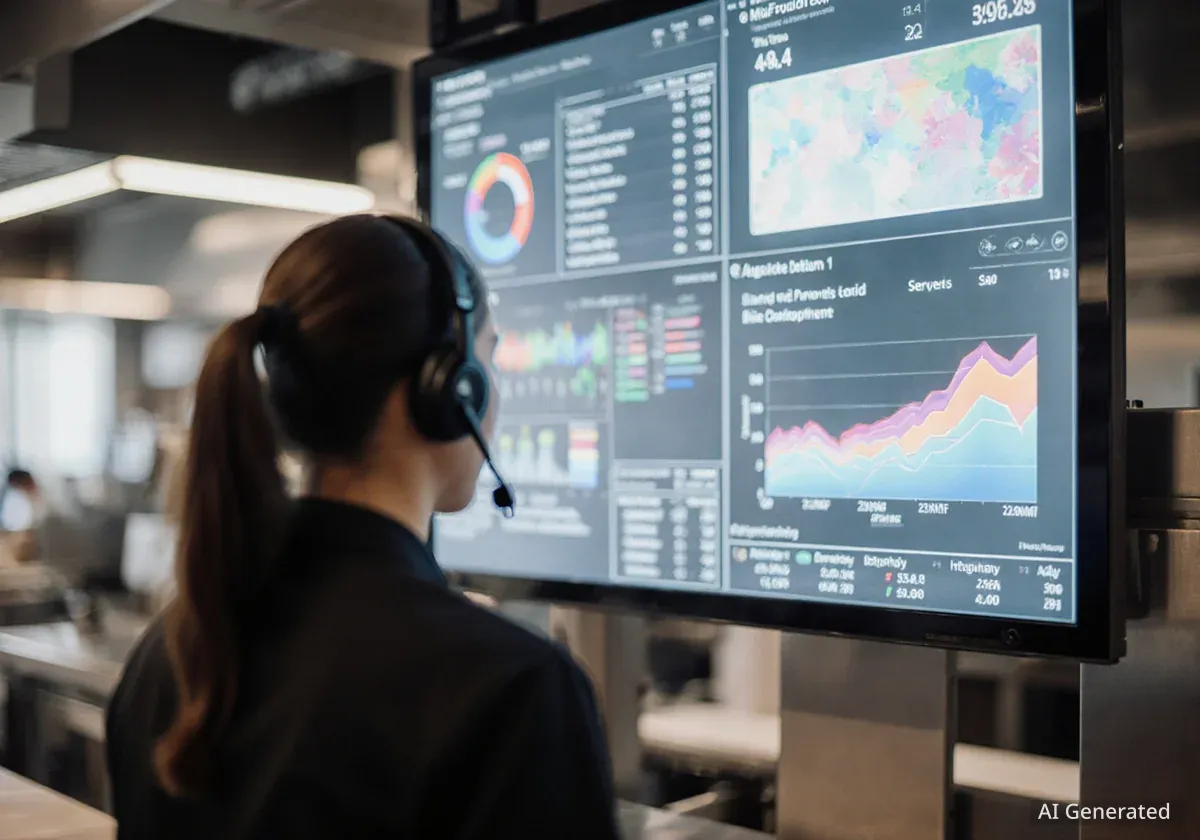Apple is navigating a complex period defined by strong consumer demand for its new hardware and significant internal challenges in its artificial intelligence development. While the recently released iPhone 17 is experiencing sales growth not seen since the pandemic, the company's ambitious overhaul of its Siri voice assistant is reportedly facing performance issues and delays, creating a dual narrative for the technology giant.
Key Takeaways
- Apple engineers report performance problems with the next-generation Siri, planned for a spring 2026 release.
- The company is experiencing a loss of key AI talent to competitors like Meta Platforms.
- Despite AI setbacks, the iPhone 17 is seeing robust sales, with revenue projected to grow 4% in fiscal 2025.
- Analysts hold a "Moderate Buy" consensus rating on Apple stock, balancing hardware success against AI development risks.
Siri Overhaul Encounters Development Hurdles
Internal tests of Apple's next major software update, iOS 26.4, have revealed performance concerns with the company's completely redesigned Siri system. According to reports from Bloomberg, engineers working on the project have noted that the new AI assistant is slower and less accurate than expected at this stage of development.
The updated Siri is engineered to handle far more complex and personalized commands. Its design allows it to retrieve information from a user's messages, calendar events, and travel applications in a single, conversational request. However, the current build has not yet met the high-quality standards Apple sets for its products.
A System Rebuilt from the Ground Up
This is not the first challenge for the project. Earlier this year, Apple reportedly had to scrap and rebuild its initial version of the new Siri after it produced an error rate of nearly 33%. The second iteration, currently in testing, is more reliable but still requires significant improvement before its planned release in March or April of 2026.
The pressure to deliver is immense, as competitors are moving quickly. Google has already integrated its Gemini AI model across its Android and Workspace ecosystems, while Samsung has earned praise for its Galaxy AI features, including real-time call translation and advanced photo editing tools.
Talent Departures and Competitive Pressure
Compounding the technical challenges is a noticeable trend of top AI talent leaving Apple. Recently, Ke Yang, who was in charge of Siri's knowledge and information systems, departed the company to join Meta Platforms. He is not the first to make such a move.
Over the past year, several other key engineers and managers have made the same transition. This includes Ruoming Pang, the former head of Apple's foundational AI model team. Industry analysts suggest these departures could hinder Apple's progress at a critical time when the pace of AI innovation is accelerating across the industry.
The Broader AI Landscape
The smartphone market is rapidly becoming a key battleground for artificial intelligence. Beyond Google and Samsung, several Chinese smartphone manufacturers have already launched devices with advanced AI assistants powered by local language models, increasing the competitive pressure on Apple to deliver a compelling AI experience.
As consumers become more familiar with advanced AI features, these capabilities are expected to become a primary factor in purchasing decisions by 2026. A significant delay or underwhelming launch of the new Siri could risk Apple losing its competitive edge in a market it has long dominated.
iPhone 17 Drives Renewed Growth
While its AI division faces headwinds, Apple's hardware business is thriving. The iPhone 17, which features the most significant redesign in years, is driving a resurgence in sales. Early data from Apple's supply chain and mobile carrier partners indicate that demand has surpassed initial expectations.
Several factors point to this strong performance:
- Longer Wait Times: Bank of America reported that shipping times for the iPhone 17 are approximately 13% longer than for last year's model, a common indicator of high demand.
- Increased Store Traffic: Observers have noted the return of queues outside Apple Stores, a phenomenon less common in recent years.
- Favorable Market Conditions: Effective trade-in programs and carrier subsidies, particularly in China, have helped stimulate sales and encourage upgrades.
"The iPhone 17 launch was stronger than Wall Street expected," said Gene Munster of Deepwater Asset Management, highlighting the positive market reception.
This hardware success provides a crucial financial cushion for the company. The iPhone product line still accounts for more than 50% of Apple's approximately $390 billion in annual revenue, making its performance vital to the company's overall financial health.
Financial Projections and Market Outlook
The strong sales are reflected in optimistic financial forecasts. According to Visible Alpha, analysts project Apple's iPhone revenue will reach $209.3 billion in fiscal 2025, a 4% increase from the previous year. For fiscal 2026, that figure is expected to climb nearly 5% to $218.9 billion.
This marks a significant turnaround from a 2% sales decline in 2023 and flat performance in 2024. Unit sales are also projected to increase, potentially reaching between 240 million and 260 million units by the end of the decade.
Balancing Hardware Success with AI Ambitions
For investors, Apple presents a mixed picture. The undeniable success of the iPhone 17 demonstrates the company's continued strength in hardware design and supply chain management. The decision to absorb potential tariff costs rather than increase prices has also helped maintain consumer demand.
However, the persistent delays in its AI rollout remain a source of concern. Francisco Jeronimo of IDC noted the quarter was "very strong" for hardware, but other analysts are more cautious. Jefferies recently downgraded Apple's stock to "underperform," suggesting that investor expectations may have become too high following the stock's recent rally.
The company's next fiscal fourth-quarter results, scheduled for release on October 30, will provide the first official data on iPhone 17 sales. A strong report could solidify confidence that Apple has entered a new cycle of growth, but the long-term question of its competitiveness in the AI era will remain until the new Siri is successfully launched.
Analyst Consensus
Despite the challenges, Wall Street analysts maintain a generally positive outlook, with a "Moderate Buy" consensus rating. The average stock price target is approximately $255.50, suggesting modest upside from its current valuation. This reflects a belief that Apple's hardware ecosystem remains strong enough to weather the delays in its software innovation.





